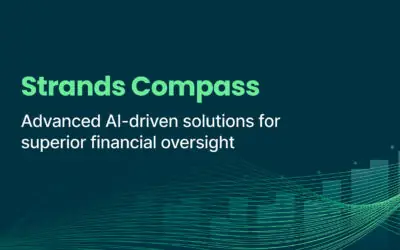Consumers and governments are pressuring banks to deliver more sustainable banking solutions. With increasing customer demand for green tools to understand and address their environmental impact, and the appearance of new regulatory requirements; banks now have an immense opportunity to help make an impact and transform their customer’s journeys.
What is sustainable banking?
Traditional banking is centered around profit above all. Sustainable banking, also known as ethical banking, refers to these traditional banking practices prioritizing social and/or environmental sustainability.
This new approach to banking empowers customers to help them understand their personal contributions and take action to change the world around them. Banks can start taking sustainable banking approaches in different ways:
- Green banking solutions: provide customers financial tools to understand their activity and suggestions for greener consumption habits or behaviors.
- Supporting organizations: helping their business customers adopt new eco-friendly frameworks and adapt a greener journey.
- Going green: investing in sustainable, advanced and innovative technology and supply chain models, as well as reducing their own carbon emissions.
Why is sustainability becoming important?
Climate change poses a whole new challenge for banks. They have a direct impact on their carbon footprint contribution, since they are the largest source of funding for those eco-friendly organizations to those who pollute most. As a result, all stakeholders are starting to expect sustainable commitments to diminish climate change impact.
Going green and committing to help address key sustainability affairs helps banks gain credibility as game changers in a society that is increasingly becoming concerned about the environment. A bank with such a reputation, is more likely to raise more funds and get more business opportunities as it does not only improve their branding, but also demonstrate agility.
Furthermore, it is not new that climate change has been concerning governments and central banks. There is now a demand for banks to prepare to build technologies or take measures to address climate risks in order to comply with new regulations.
Benefits of sustainable banking for banks
Meeting new customer demands and staying up-to-date with new regulations are not the sole benefits of behaving sustainably for banks. All in all, ethical banking helps banks:
- Drive digital engagement.
- Improve brand reputation.
- Up-sell and cross sell their products.
- Increase customer loyalty.
Delivering greener experiences
Delivering more sustainable experiences for banks is becoming a new need. At Strands, we help banks and financial institutions integrate a Carbon Footprint Scoring into their product suite that helps customers understand their consumption impact and how they can improve a greener or more sustainable consumption habits with specialized insights and relevant information. If you are interested in learning more about how partnering with us can help your bank go greener, talk to our experts or request a demo.



